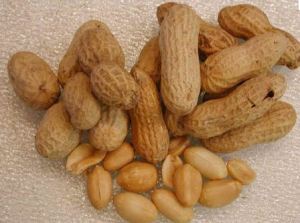With school back in swing and knowing a few children with very severe allergies, I thought I would share information provided by the CDC about food allergies and schools.
According to the CDC an allergy is an abnormal immune response to a certain food that  the body reacts to as harmful.
the body reacts to as harmful.
Common food allergens account for 90% of all food-allergy reactions – cow’s milk, eggs, peanuts, tree nuts (walnuts, pecans, hazelnuts, almonds, cashews, pistachios, and macadamia nuts), fish, shellfish, soybeans, and wheat.
Symptoms of a food allergy can range on a scale from mild to severe. Any food allergy reaction should be taken seriously and you should consult your physician if your child has a reaction to any type of food. Some of the common symptoms are –
- Hives
- Swelling in the mouth
- Swelling in the tongue and throat
- Difficulty breathing
- Abdominal cramps
- Vomiting or diarrhea
- Eczema or rash
- Coughing or wheezing
- Loss of consciousness
- Dizziness
The most severe reaction is anaphylaxis, and “is a sudden severe allergic reaction that involves various areas of the body simultaneously or causes difficulty breathing and swelling of the throat and tongue. Anaphylaxis can result in death.”-According to the CDC
If your child has a food allergy you should talk with your physician about next steps to learn about the allergy and precautions to take to prevent an reaction. You also need to teach your child about their allergy, make them aware of what types of food they can and cannot have, also to tell an adult when they begin to have an allergy to alert and adult. Your child’s teacher and caregiver should also know how to be aware of these symptoms and use an Epi-Pen.
With 4-6% of children under 18 having a food allergy, there is a chance your child will be in class with a child with an allergy. What should you do? Most parents who have a child with an allergy will talk to parents about it at the begining of school, or send information home for the parents to read. I can not stress this enough, if parents are concerned enough to let other parents know about their child’s allergy, it is probably pretty severe, and could be deadly for their child. It is very important to inform your child about their classmate’s allergy and do what you can to prevent taking food that can cause a reaction. Parents of children with allergies are not trying to inconvenience parents, they just want to keep their children safe, and with potential to result in death, your child could go with out certain items for lunch.
Finally, I heard recently that a new form of ‘bullying’ was to throw food at a child who is allergic to it. This is sick to me, but it is going to happen, we have to inform our children that allergies are not something to be taken lightly, and if you find out your child is doing this, check out my post about what to do if your is the bully.
Read the full article from the CDC here.
Centers for Disease Control and Prevention.(2012,February 17). Food Allergies in Schools Retreived August 28, 2012, from http://www.cdc.gov/healthyyouth/foodallergies/
Picture – Vegan-Vegetarian Recipe Book. Ingredients: Descriptions and Photos Peanuts, dry roasted. Retreived August 28, 2012 from http://www.all-creatures.org/recipes/i-peanuts.html
Does your child have an allergy? What about a classmate with an allergy?
